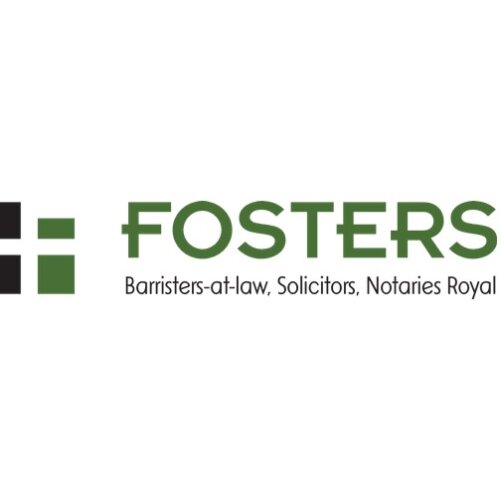Best Mining Law Lawyers in Castries
Share your needs with us, get contacted by law firms.
Free. Takes 2 min.
List of the best lawyers in Castries, Saint Lucia
About Mining Law in Castries, Saint Lucia
Mining Law in Castries, Saint Lucia governs the exploration, extraction, and management of mineral resources within Saint Lucia, including the urban center of Castries. The law establishes the legal requirements for obtaining and operating mineral rights, the responsibilities of mining operators, and the framework for environmental protection. The Ministry of Infrastructure, Ports, Transport, Physical Development and Urban Renewal typically oversees mining activities, working with other government agencies to ensure compliance with both national laws and international standards. Mining in Saint Lucia is mainly focused on resources such as sand, stone, and other construction materials, given the island's geology and environmental commitments.
Why You May Need a Lawyer
Individuals or companies may require a lawyer experienced in Mining Law for a variety of reasons. These can include negotiating and securing mining licenses, navigating complex regulatory requirements, disputing penalties or infringements, handling contract negotiations between private parties or with the government, and ensuring that all environmental and safety obligations are met. Additionally, landowners or communities may seek legal advice if mining activities are proposed near their property or if they believe operations are adversely impacting their environment or rights. Whether you are a prospective miner, landowner, or regulatory stakeholder, legal guidance is crucial to protect your interests and ensure compliance with the law.
Local Laws Overview
Key aspects of Mining Law in Castries, Saint Lucia are outlined in the Minerals (Vesting) Act and regulated by relevant authorities. No individual or company may engage in mining activities without the proper license issued by the Ministry. The process to obtain a mining lease or permit requires an application that includes environmental impact assessments, proof of technical and financial capability, and a development plan for the site. The law also provides protocols for community consultation, compensation, and remediation plans to mitigate adverse environmental impacts.
Operators must comply with local zoning, land use regulations, and environmental management guidelines. The government further retains rights to monitor operations, revoke licenses for breaches, and penalize unauthorized mining. The Customs and Excise Department may also regulate the export of certain mineral resources. In all, the legal framework aims to balance economic development with the protection of Saint Lucia’s environment and communities.
Frequently Asked Questions
What minerals are commonly regulated under Mining Law in Castries, Saint Lucia?
The law primarily covers sand, gravel, stone, clay, and other construction materials, but may apply to any mineral defined by statute.
Who oversees mining activities in Saint Lucia?
The Ministry of Infrastructure, Ports, Transport, Physical Development and Urban Renewal is generally responsible for managing mining regulation and enforcing mining laws.
Do I need a license to mine on my own land?
Yes, even if you own the land, you must obtain the appropriate mining or quarrying license or permit from the Ministry before commencing any mining activity.
What steps are required to obtain a mining license?
You must submit a detailed application including project plans, an environmental impact assessment, and proof of your technical and financial ability to conduct mining responsibly.
Are environmental impact assessments mandatory?
Yes, Saint Lucia places a strong emphasis on environmental stewardship and requires assessments to gauge the potential effects of proposed mining activities before approval is granted.
What are typical conditions attached to mining permits?
Conditions can include constraints on operational hours, environmental mitigation measures, rehabilitation plans for site closure, and monitoring obligations.
How are disputes over mining or land rights resolved?
Disputes may be settled through negotiation, mediation, or legal proceedings in Saint Lucian courts. Legal support is highly recommended for such matters.
Are there penalties for unauthorized mining?
Yes, unauthorized mining can result in significant fines, confiscation of equipment, and even imprisonment under local law.
Can foreign entities acquire mining rights?
Foreign companies are typically eligible for mining rights, but must comply with all local legal and regulatory requirements, and sometimes face additional scrutiny or obligations.
What recourse do communities have if mining causes harm?
Affected persons or communities can seek legal remedies for damages, lodge complaints with regulatory authorities, and request intervention to halt or modify harmful mining operations.
Additional Resources
- Ministry of Infrastructure, Ports, Transport, Physical Development and Urban Renewal: The primary governmental body for mining matters
- Saint Lucia Bar Association: To find qualified legal practitioners specializing in Mining Law
- Department of Sustainable Development: For environmental policies and requirements related to mining
- Saint Lucia National Trust: Environmental and heritage advocacy relevant to mining impacts
- Local courts and legal aid services: For dispute resolution and access to justice
Next Steps
If you need legal assistance with Mining Law matters in Castries, Saint Lucia, consider taking the following steps. Start by gathering any documents related to your inquiry, such as land titles, previous correspondence with authorities, and maps or diagrams of the affected area. Identify your key questions or concerns. Then, consult a legal practitioner with expertise in Mining Law. You may contact the Saint Lucia Bar Association for referrals. Be prepared to discuss your objectives, provide all relevant information, and ask about possible strategies and costs. Early legal consultation can help you avoid costly mistakes and ensure compliance with all local regulations and requirements.
Lawzana helps you find the best lawyers and law firms in Castries through a curated and pre-screened list of qualified legal professionals. Our platform offers rankings and detailed profiles of attorneys and law firms, allowing you to compare based on practice areas, including Mining Law, experience, and client feedback.
Each profile includes a description of the firm's areas of practice, client reviews, team members and partners, year of establishment, spoken languages, office locations, contact information, social media presence, and any published articles or resources. Most firms on our platform speak English and are experienced in both local and international legal matters.
Get a quote from top-rated law firms in Castries, Saint Lucia — quickly, securely, and without unnecessary hassle.
Disclaimer:
The information provided on this page is for general informational purposes only and does not constitute legal advice. While we strive to ensure the accuracy and relevance of the content, legal information may change over time, and interpretations of the law can vary. You should always consult with a qualified legal professional for advice specific to your situation.
We disclaim all liability for actions taken or not taken based on the content of this page. If you believe any information is incorrect or outdated, please contact us, and we will review and update it where appropriate.










